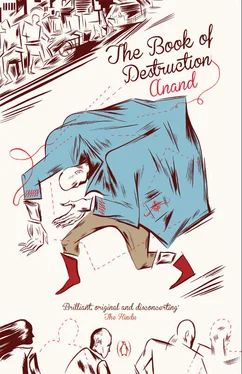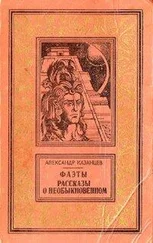These days we are identified and assessed by the clothes we wear. We claim to be able to judge merely by looking at their apparel whether a person is a man or a woman, which country they belong to, which religion they practise, and what their social or economic status may be. From their clothes we can also judge the ‘taste’ of a person and how egoistic or snobbish they might be. The previous century was dominated by ideologies, many defined by the colour of the shirt worn by their storm troopers. I don’t know if ideologies would regain the importance and awe they had generated during the last century, but other professions appear to have taken the symbolism of shirts and colours to their heart. While companies insist on their sales employees wearing shirts of a particular brand, others entice their customers into wearing their brand names.
I found that recently I had started paying more attention to my tailor friend in the market. He certainly was not the grand, hypothetical tailor Hasan had spoken of. Just an ordinary tailor in our neighbourhood market, quiet and unassuming. He would talk to me about the art of tailoring, in his own way. He felt that his art came very close to a spiritual activity, changing not just the body, but the very soul of a person who wore his garments. I had not given it much thought. I had assumed he was being poetical, and he did exhibit a flair for poetry in his speech. Come to think about it, Seshadri too had waxed poetic when he, as a mali, had befriended me. Hasan had not been far behind.
I was not a customer of the tailor’s. He knew that I was more of a ready-made clothes person. He had no complaints. In fact, he supplied to the ready-mades market as well. A decent man, he never tried to force his products on me. Thus, without a customer — producer factor between us, our familiarity grew and we became friendly.
His shop was on a busy street in the bazaar. It was impossible to ignore the saintly smile he would bestow on one and all passing by, irrespective of whether they were his customers or not. Yet, somehow, he did not appear to have many friends. And, as I think about it, I realize I had never seen any customers in his shop either. Whenever I had looked in, there were only he and his assistants.
My friend was not, of course, the product of any institute of fashion technology. He was not even famous in the trade. That he did not look at the job of dressmaking from the angle of fashion was perhaps the reason for his unpopularity. Famous or not, I had no reason to doubt his talent or artistic capabilities.
No one who had met him once would have failed to notice that the secret of his art was not just his talent and craft, but the involvement and dedication with which he invested himself in his work. I used to tell myself that if the dresses he made were beautiful poems, his stitching had the grace of a dancer. In fact, it was his dance-like movements when engaged in his work that had first caught my attention. Only later when I started talking to him did I learn he was also a poet. My deduction was that the rhythm he exhibited in his movements when he stitched spilled over into his words when he spoke.
One day, I wondered if the interest and concern he gave to his art perhaps also reached out to the people who were supposed to wear the clothes he stitched. That was when it dawned on me that most of his creations just hung in the showcases of his shop, never reaching a customer. He poured out his time and talent to give human shape to plain, flat cloth, but he could not stand them upright or breathe life into them. It was a sad sight to see the clothes hanging from the shop hangers, shoulders sagging, sleeves swinging lifelessly. Beautifully made coats, achkans, sherwanis, kurtas, phirans — their shapes and designs had become so familiar to me, having seen them there for days and months, that if I saw anyone in the street wearing them, I would be able to say with certainty that it was his work. But I had never seen them outside his shop. I hailed him from the street to share my thoughts. He was immersed in his work, his feet moving rhythmically on the pedals of the machine and his delicate fingers following the dance of the needle. He completed the section he was doing, rose after briefly touching the machine with his forehead ritualistically. With a blissful smile of fulfilment he invited me inside.
‘Don’t mind my asking, friend, what is the matter with your beautiful works of art?’ I asked hesitantly. ‘Fashion is raging in town. People buy new dresses without waiting for the old ones to live out their life. Festival seasons come and go. And your magnificent creations continue to hang in the showcases, empty and dead.’
The tailor spent a few moments eyeing the street in front of the shop. Then, suddenly, to my surprise he burst out in the form of a poetical soliloquy, unmindful of my presence: ‘Wandering in the streets are innumerable souls. Injured, broken, fragmented and falling apart. Unable to recognize each other and failing to find their way, they wander listlessly. People who should become characters, heroes and heroines of grand plays drift about namelessly, naked and not knowing that they are naked.’
The rhyme and music in his words captured my interest. It was certainly a new way of looking at the hundreds of people I have been seeing every day on the streets. To me they appeared anxious to reach their homes or whichever destination they were heading towards. Cheerful and spirited they looked sometimes, and at other times worried or wary. I had not thought of looking at them this way. Unable to recognize each other, failing to find their way, broken, falling apart … as if their identities had been so shattered physically and mentally that each limb was moving about freely, as if they were naked to the extent of not realizing their nakedness …
‘If one has lost his self, individuality, home and path, if nakedness has fallen over him in the way you lament, my friend, wouldn’t that nakedness itself become his clothing?’ I responded, trying to fit myself into the poetical mood he was in. ‘In a state where limbs are falling apart and moving freely, one would not know if the hand striking at him was his own or operating from another man’s shoulder.’
The tailor appeared happy with my response. He said, ‘Or the hand consoling him, for that matter. Who can say if you are placing someone else’s hand and not yours on the shoulder of a fellow being to console him? Consolation thus gets detached from the consoler, from the one being consoled, and floats between the two on its own.’
I thought our poetical excursion was going too far and it was time to get back to reality. We were being hijacked by our metaphors, a predicament writers often find themselves in. Words jump in from nowhere and interrupt our dialogue with our readers as well as with our characters. It is not an easy and happy walk for a writer, between these two entities, as many seem to imagine. Especially when the medium of the journey is one where reality, logic, fiction and fantasy compete with each other. The predicament of a writer could also be that of an artist, as with my friend here.
So I asked the tailor: ‘And yet, my friend, these fragmented souls do converse between themselves. They are laughing, quarrelling, embracing, kissing, caressing and even mating to produce new entities.’
This time the tailor was clearly displeased with my intervention. Perhaps he found my artistic fervour to be a step behind his. That I did not belong on the plane where he lived. And he was not willing to walk back with me.
Shaking his head and sticking to his style of poetics, but now with a new harshness in his voice, he cut in, ‘The new souls they give birth to would not be very different from them. Fragmented, directionless and away from the light of truth. The false light they go after mistakenly will only lead them to hell, where they will remain like animals, naked externally and internally.’
Читать дальше











